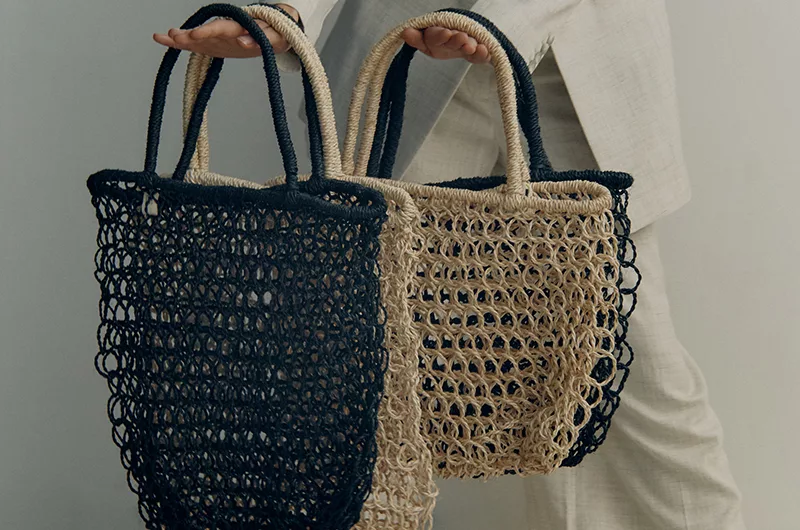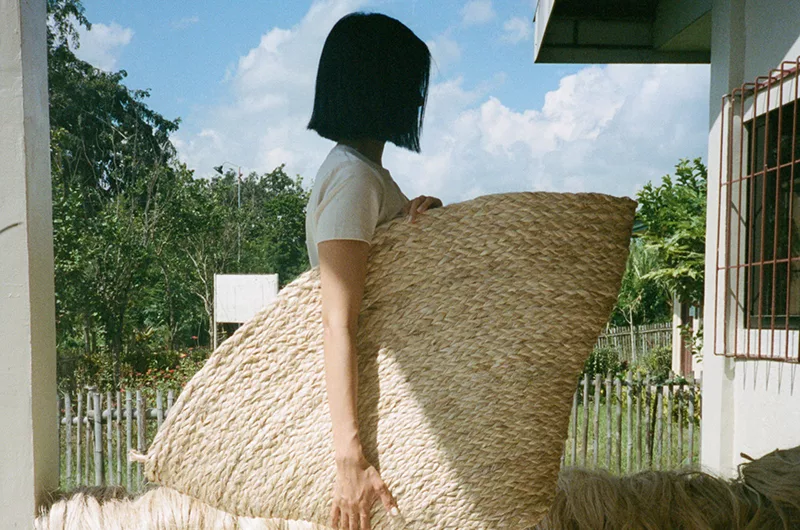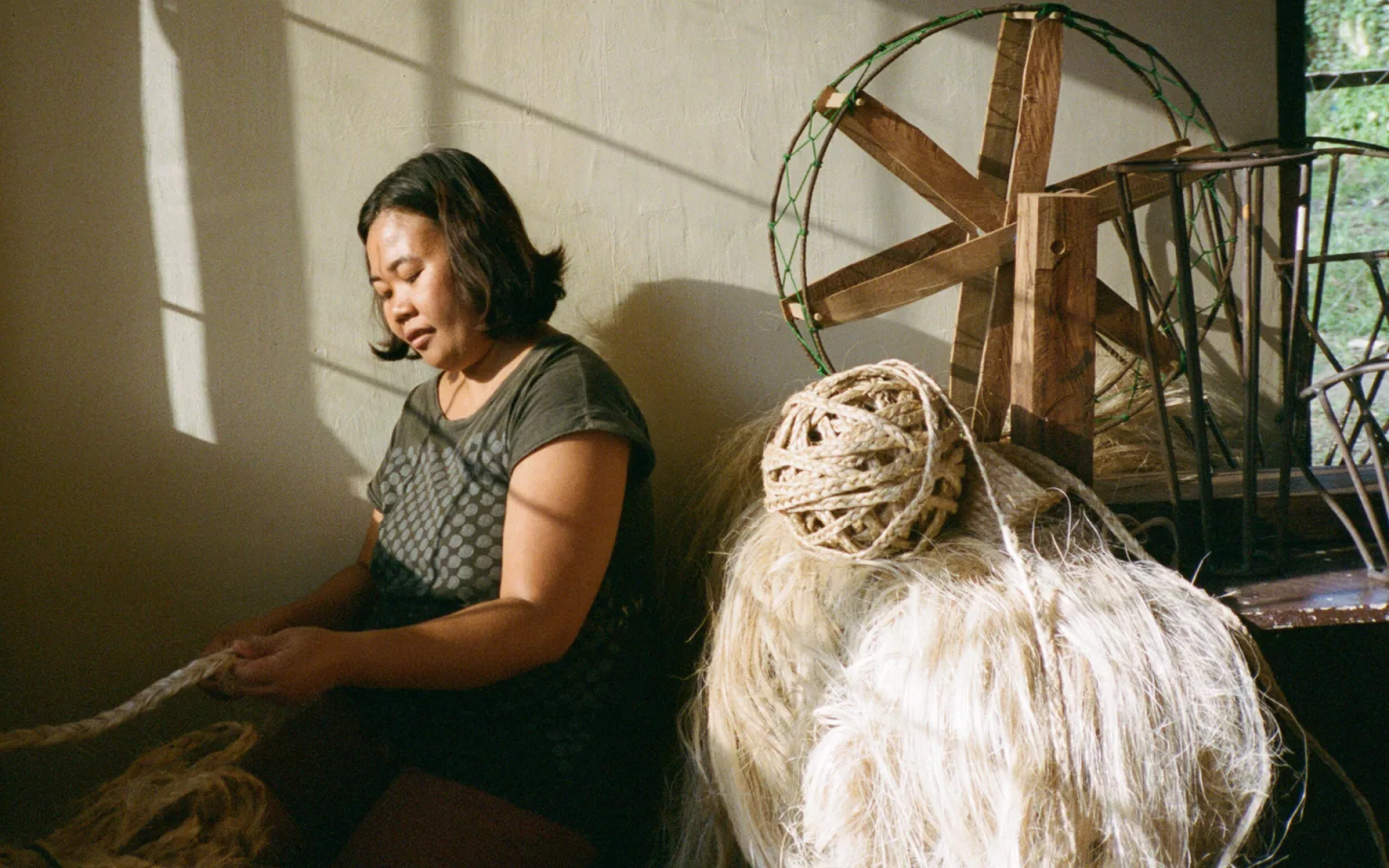WEAVING A FUTURE FOR WOMEN IN BUSINESS
A RESPONSIBLE RETAIL ENVIRONMENT
Around six weaving groups currently work for Uri, which champions transparency in the production process as well as the supply chain. The farmers and artisans are paid consistently and above the Fairtrade wage, and the workers are in safe, comfortable environments.
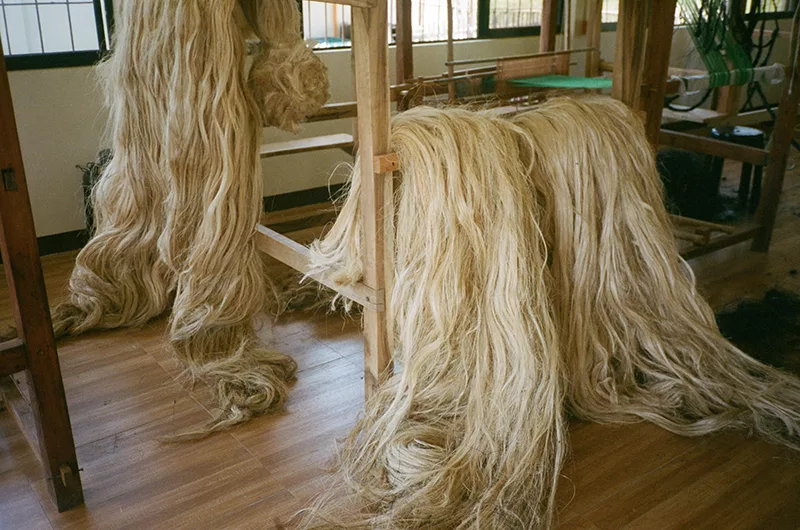
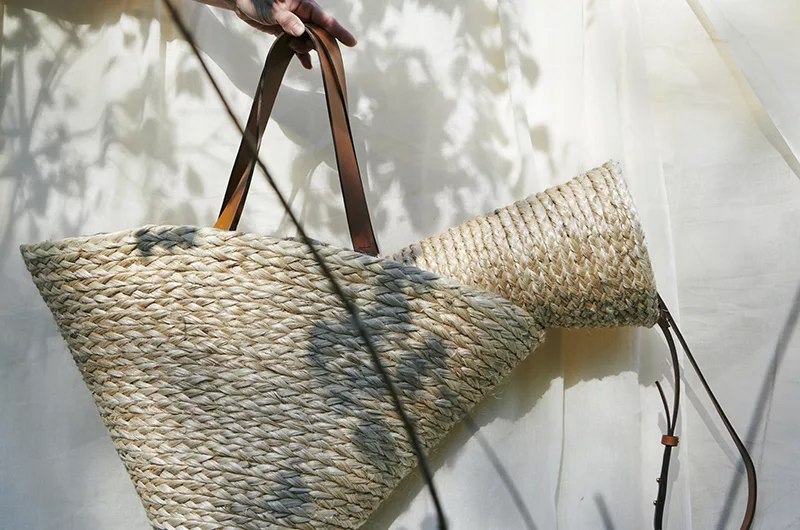
WORLD OF WEAVING
Jacobs’ interest in design began with her career as a clothes designer, but she always had an avid interest in basketry as one of the world’s oldest crafts. This encouraged her to look to her mother’s lineage in the Philippines, as a nation with a rich culture embedded in weaving.
“The Philippines is rich in skills, it has a wealth of lineage in weaving, since weaving fabrics is one of the country’s main industries,” she comments.
Uri is a cottage industry company which not only designs its own bags and baskets, but grows the fibre, harvests it for the material, and weaves the products.
The brand’s sustainable manufacturing process, practical designs with biodegradable bodies and linings and its 95 percent female workforce represent Uri’s key differentiators.
“Along with wanting to create a sustainable fashion brand, it was important to me to give opportunities to other women, including mothers and grandmothers,” adds Jacobs.
SUPPORTING COMMUNITIES
Jacobs’ understanding of entrepreneurship and motherhood affords women the opportunity to take care of their children and earn an income simultaneously. Employing the talents of the local artisans in impoverished matriarchal communities is an important part of the Uri ethos.
“Our main hires are female artisans in the Philippines,” she says. “I wanted to elevate the manufacturing industry in that country, and I have so much respect for the level of craftsmanship shown by the people who work for us.”
Through Uri, Jacobs hopes to inspire and empower the next generation from within the local Filipina community.
“The general consensus is the culture of weaving is for the elders, but I want to incentivise the younger community. My vision for the future is to support education within our communities, particularly the young. Upskilling and providing a future is hugely important to us. We can put a percentage of the revenue from our bags into a fund which will pay for their education and healthcare.”
Uri already invests in the lives of women in the Philippines, but Jacobs wants that investment to continue down the generations.
“I would love to employ and train within our communities. The younger generation and children inspire me. I hope they see a structure like Uri and think about the whole supply chain, so new brands that come through are sustainable and ethical,” she shares.
The whole process is not without its difficulties: combining remote mountain weaving communities with treacherous terrain and monsoons means meeting deadlines can be challenging, but Jacobs is tenacious, and she remembers her motivation for undertaking the task.
“To be able to creatively collaborate is one of the reasons I do this. I get inspiration from the traditional weaves that the women do, and I work with their skill set and refine it,” she surmises. “I hope that we can continue to evolve our designs as the communities that we work with continue to progress.”
“I keep going so I can inspire another Filipina child to be part of the Uri story.”
